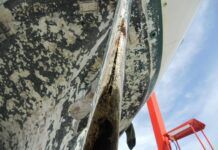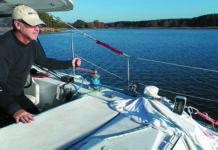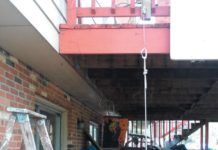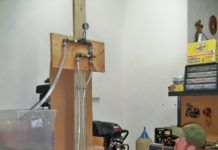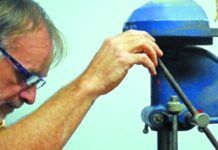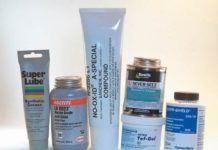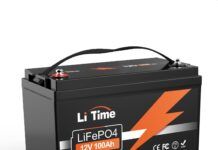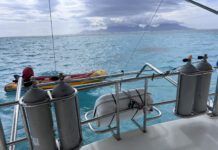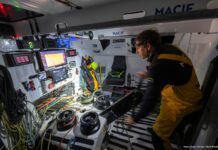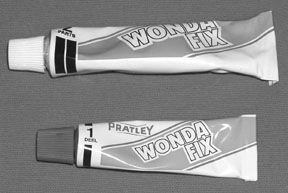
Every DIY sailor values a versatile adhesive, which is why we took keen notice when a package arrived from Pratley Products, a South Africa-based company that makes high-strength adhesives, among other products. As the company’s marketing verbiage announces, its products “out-perform any other on the world market.”
That is indeed a bold claim, but if true, those products might prove very handy for sailboat owners.
Among the items in the packet PS received were several samples of Wonda Fix, a “high-strength, flexible” two-part adhesive that “mends rigid and flexible materials permanently.” Depicted on the package of Wonda Fix is a 13-ton bulldozer suspended from a cable. Both the cable and the straps holding the bulldozer are attached to large industrial shackles that are each attached to plates, and those plates are reportedly bonded with a thin bead of Wonda Fix.
Wonda Fix is advertised to work on almost any surface except glossy ones, and high-temperature applications. It’s paintable, and the company claims it sets up under water as well.
That was enough to pique our interest, so we dug in to find out more.
Wonda Fix comes in small capped tubes. It’s nearly odorless, and both the adhesive and catalyst are clear, which poses the slight problem of knowing when the substances are fully mixed. It also claims to be non-toxic, so you can smear it in place with your fingers, if necessary.
To test Wonda Fix, PS applied it to several substances. We glued pieces of plastic, fiberglass, wood, aluminum, and stainless steel, reasoning that these various bonds represent the majority of uses sailors might have for a product like Wonda Fix. We also used it underwater on two pieces of aluminum. And, we thought it would be instructive to adhere some dacron sail cloth together with Wonda Fix to see if that is a feasible application as well.
So what did we discover?
Our first attempts failed; the glued joints didn’t hold. Reasoning that we hadn’t mixed Parts 1 and 2 thorougly enough or hadn’t waited long enough, we tried a second batch, and this time left the joints to cure overnight. (Wonda Fix claims to be completely dry in 1/2 hour, with 20% strengh. After 4-1/2 hours it reportedly achieves 60% strength.)
This time the majority of the joints held remarkably well. We couldn’t pull the Dacron pieces apart despite mighty attempts. The product bonded aggressively to the stainless, fiberglass, and wood, but not so well to the plastic or aluminum. And the underwater test was a failure.
At $5.50 for a 30 ml. package, Wonda Fix isn’t cheap, but we think it would be useful to have on hand.
Contact – Pratley Distributing, 904/285-5727, www.pratleydistributing.com.








